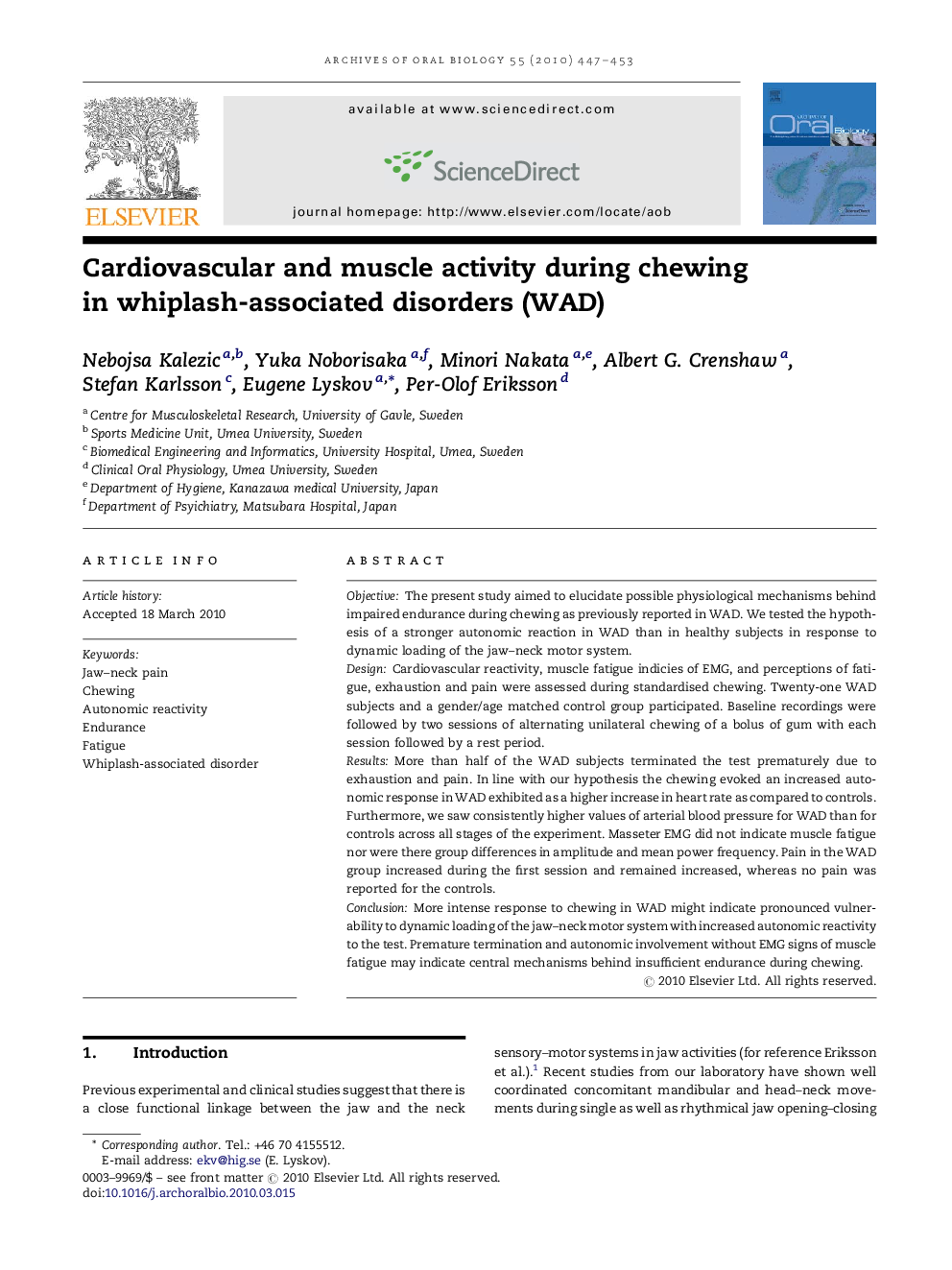| Article ID | Journal | Published Year | Pages | File Type |
|---|---|---|---|---|
| 3121160 | Archives of Oral Biology | 2010 | 7 Pages |
ObjectiveThe present study aimed to elucidate possible physiological mechanisms behind impaired endurance during chewing as previously reported in WAD. We tested the hypothesis of a stronger autonomic reaction in WAD than in healthy subjects in response to dynamic loading of the jaw–neck motor system.DesignCardiovascular reactivity, muscle fatigue indicies of EMG, and perceptions of fatigue, exhaustion and pain were assessed during standardised chewing. Twenty-one WAD subjects and a gender/age matched control group participated. Baseline recordings were followed by two sessions of alternating unilateral chewing of a bolus of gum with each session followed by a rest period.ResultsMore than half of the WAD subjects terminated the test prematurely due to exhaustion and pain. In line with our hypothesis the chewing evoked an increased autonomic response in WAD exhibited as a higher increase in heart rate as compared to controls. Furthermore, we saw consistently higher values of arterial blood pressure for WAD than for controls across all stages of the experiment. Masseter EMG did not indicate muscle fatigue nor were there group differences in amplitude and mean power frequency. Pain in the WAD group increased during the first session and remained increased, whereas no pain was reported for the controls.ConclusionMore intense response to chewing in WAD might indicate pronounced vulnerability to dynamic loading of the jaw–neck motor system with increased autonomic reactivity to the test. Premature termination and autonomic involvement without EMG signs of muscle fatigue may indicate central mechanisms behind insufficient endurance during chewing.
